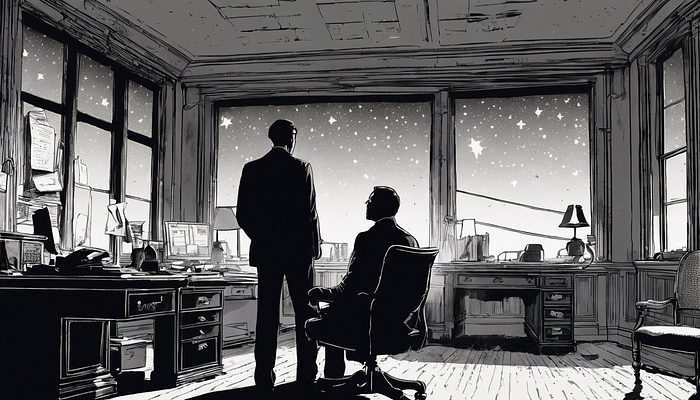A Tribute to Charlie Munger: The Legacy of a Business Visionary
Written on
Chapter 1: The Lasting Impact of Charlie Munger
The news of Charlie Munger's passing at the age of 99 has sent ripples through the business and investing communities, with tributes flooding in from across the elite echelons. As the vice chairman of Berkshire Hathaway for over forty years, Munger was instrumental in transforming the company into the powerful conglomerate it is today.
Munger's collaboration with Warren Buffett might have seemed unconventional to outsiders—a reserved Californian paired with a charismatic Midwesterner. However, their partnership was a perfect blend of complementary strengths and weaknesses. Buffett himself acknowledged, "Berkshire Hathaway could not have achieved its current stature without Charlie's inspiration, wisdom, and involvement."
During Berkshire's renowned annual shareholder meetings, affectionately dubbed the "Woodstock for Capitalists," the duo entertained audiences with their witty exchanges, akin to an old married couple. Beneath this humor was a profound balance of prudence and optimism, realism and idealism. While Buffett was the charm and flair, Munger brought skepticism and critical analysis to their discussions. Buffett's eye for opportunity was paired with Munger's knack for identifying risks, allowing them to make savvy, calculated investments that significantly benefited their shareholders.
As an investor, Munger approached his work with the rigorous analytical mindset of an attorney, meticulously examining a company's financials and leadership. He encouraged Buffett to shift from investing in low-quality "cigar butts" to focusing on high-quality, long-term brands like Coca-Cola and American Express. Munger also expanded Berkshire's portfolio beyond stocks and insurance into sectors like utilities, manufacturing, and retail, creating a diverse array of profitable subsidiaries.
However, Munger's influence extended well beyond investment strategies. He instilled a culture of patience, independent thought, and learning from failure within Berkshire Hathaway. At annual meetings, he shared practical wisdom and "mental models" that shareholders could apply in both business and life. His memorable sayings, such as "All I want to know is where I'm going to die, so I'll never go there," showcased the clever humor that lay beneath his seemingly curmudgeonly exterior.
As successors like Ajit Jain and Greg Abel take the helm under Buffett's guidance, the decentralized structure that Munger helped cultivate ensures Berkshire Hathaway will operate efficiently in his absence. Nonetheless, Munger's unique insights and personality will be irreplaceable.
The operational continuity of Berkshire is assured, but it will undoubtedly lack the vibrancy and humor that Munger brought to the table—no more witty comparisons of Bitcoin to venereal disease, for instance. On a personal note, Buffett has lost his trusted counterpart—the Robin to his Batman, the Spock to his Kirk. After nearly sixty years of partnership, this departure leaves an irreplaceable void.
The Oracle of Pasadena has left for good, but the invaluable lessons he shared will continue to inspire future generations.

Chapter 2: Insights from the Masters
In the video titled "Warren Buffett & Charlie Munger: the Peter Lynch Two-Minute Monologue on Berkshire," we gain valuable insights into the dynamics of their partnership and the philosophy behind their investment strategies.
Another fascinating perspective is offered in "Charlie Munger lived in the same home for 70 years: Rich people who build." This video delves into Munger's personal life and values, shedding light on the principles that guided his decisions both in business and beyond.